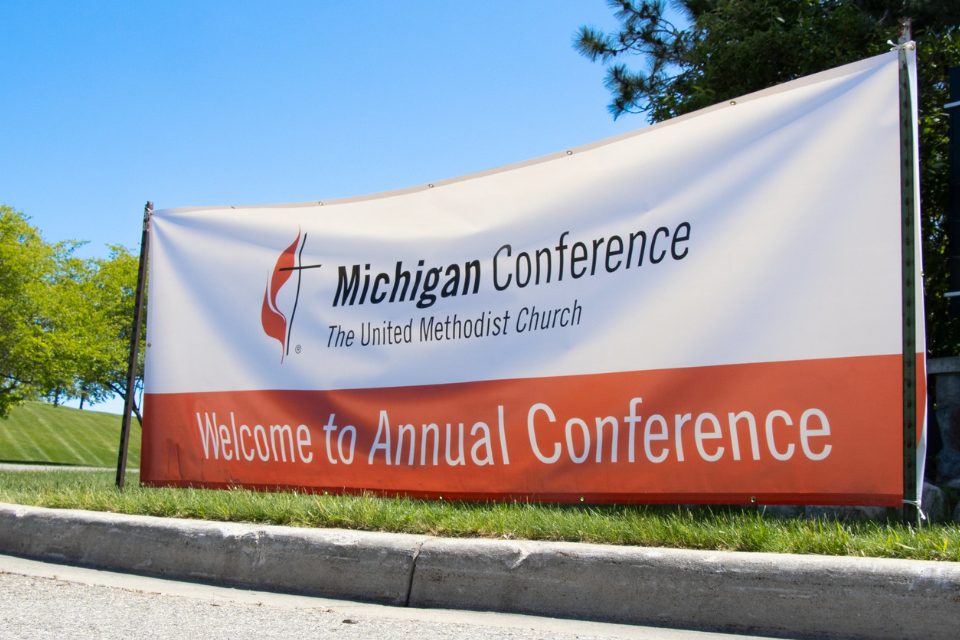The Michigan Conference Board of Trustees reports that 60 of Michigan’s 721 United Methodist churches are expected to be approved for disaffiliation at this year’s Annual Conference.
JAMES DEATON
Content Editor
At the Michigan Annual Conference, scheduled for June 2-4, 2023, clergy and lay members will vote to approve the disaffiliation of 60 churches from The United Methodist Church. This represents about 8% of the 721 United Methodist churches in the state.
Six more have voted to disaffiliate but won’t complete all the requirements until the November 30 special session of the annual conference, which Bishop David Bard announced previously. The November virtual session will process these disaffiliations, and any others, in preparation for the end of the provisions in the Book of Discipline’s Paragraph 2553, which expire on December 31, 2023.
The Michigan Conference Board of Trustees, which established the exact terms and conditions for disaffiliation in alignment with Paragraph 2553, will bring a motion during the corporate session of the 2023 Michigan Annual Conference to accept the disaffiliation of these 60 churches. Their names will be released in MIconnect on Wednesday, May 24.
Approximately 200 Michigan churches have inquired about the cost of disaffiliation. Still, only a minority have taken a congregational vote and obtained the two-thirds majority to disaffiliate from The United Methodist Church. When adding the churches that have already disaffiliated, the total percentage of churches disaffiliating will rise slightly to 9% after June’s vote.
While some are choosing to leave, the majority of churches in the Michigan Conference are staying United Methodist, including the three largest churches in terms of professing members: Birmingham: First/Berkley: First UMCs, Rochester: St. Paul’s UMC, and Clarkston UMC.
The United Methodist Church does not require churches to vote on whether or not to stay United Methodist. And Michigan Conference leadership has consistently spoken about the openness of the conference, emphasizing the spaciousness of The United Methodist Church and how there is room for diversity of thought and opinion.
But conference leadership also believes this is a deeply personal matter and respects the wishes of those congregations that have discerned they must depart as a matter of conscience.
Churches seeking disaffiliation have followed the process set in motion by the 2019 General Conference, which acknowledged “the current deep conflict within The United Methodist Church around issues of human sexuality” and created a pathway for churches to exit.
The Michigan Conference implemented this process soon after the 2019 General Conference by developing a disaffiliation plan created by the Board of Trustees in partnership with an appointed Disaffiliation Task Force comprised of key conference leaders. In addition, resources, including The Future of the UMC web page and the “Blessing One Another” FAQ video and downloadable PDF, were developed to answer questions and articulate the Michigan Conference’s vision for the future.
District superintendents have been the first contact for churches inquiring about disaffiliation and have walked with them until a church vote is taken. Once a congregation votes to leave, the Rev. John Boley, the bishop’s Special Assistant who works on behalf of Bishop Bard and the Board of Trustees, guides churches step-by-step and ensures each disaffiliating church completes all the necessary tasks. Angie Anger, the Michigan Conference’s Chief Financial Officer, has also provided support with various financial aspects of disaffiliation.
There are several financial obligations that a church must pay for them to be able to leave The United Methodist Church and take their property and assets with them legally.
One of them—the equity component—is paid to the Michigan Conference to release disaffiliating churches from the trust clause. This legal statement declares that the property and assets of a United Methodist church are held “in trust” for the benefit of the entire denomination. This clause ensures that United Methodist property continues to be used as United Methodist property.
Each disaffiliating congregation must pay this equity component, a value set at two times the church’s Ministry Shares.
In her video conference report, Rev. Carolin Spragg, chair of the Board of Trustees, noted some history behind how this rate was calculated. Before 2019, for a church to leave with its assets, the Book of Discipline indicated that churches could be asked to pay up to 100% of the value of their assets. And some annual conferences have asked for up to 50 or 60% of the value.
“Here in Michigan,” she said, “we felt called to be gracious, desiring to balance making effective ministry possible for those leaving and for those remaining in the United Methodist fellowship.” As a result, the Board of Trustees agreed to set each church’s cost for release from their equity to be two times their Ministry Shares, which is, on average, about 10% of most churches’ asset value.
After setting this equity component rate, the Board of Trustees created the possibility of a waiver if a church fulfilled specific requirements. The equity component will be waived only if a disaffiliating church has faithfully paid 100% of its Ministry Shares for the past three years and if they join another Methodist denomination, including the Global Methodist Church.
Twenty-eight of the 60 churches seeking disaffiliation have qualified for waiving the equity component. The remaining churches will be required to pay their total amount.
In her closing comments in the Board of Trustees report, Carolin Spragg said, “Our prayer is that each congregation will be faithful in serving Christ in their new denominational alignment. In all cases, we would want churches that choose to depart to know that the door remains open for their return.”
Churches and individuals can find additional resources on The Future of the UMC web page. Also, if a church chooses to disaffiliate, individuals have many options to continue worshiping with a United Methodist congregation in Michigan. Learn more on the Stay UMC web page.
Last Updated on May 23, 2023

